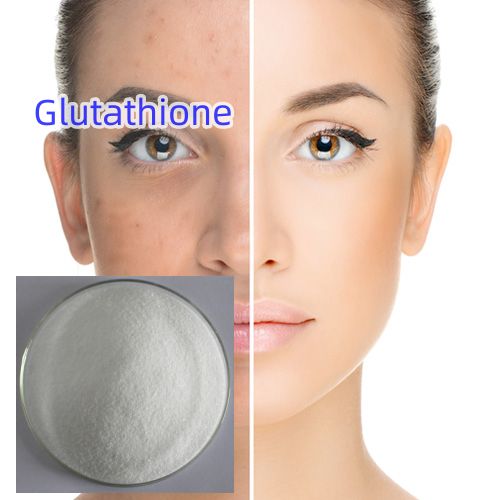The antioxidant effects of glutathione help prevent and mitigate this oxidation reaction, thereby keeping the skin light and white.
A paper in Nature Medicine points out that people do not grow old slowly, but suddenly age at the three age nodes of 34, 60 and 78.

At age 34, appearance begins to age, which is associated with a significant loss of collagen.
By the age of 60, various body functions gradually decline, hormone activity is greatly reduced, blood pathways are blocked, and the function of various organs and tissues declines, thereby increasing the risk of disease.
The age of 78 is a stage of accelerated aging that involves drastic changes in the circulatory, nervous and motor systems, as well as an increased risk of cardiovascular disease and cognitive impairment.

Although it is said that cliff aging occurs in an instant, in fact, it is only a quantitative change caused by qualitative change.
Because the human body’s metabolism, including respiration, digestion, energy production and other metabolic activities, all the time produce a large number of free radicals.
Too many free radicals can lead to oxidative stress damage to cells and tissues, which can lead to a variety of diseases and aging.
Therefore, anti-aging, starting before the age of 34, the most important thing is anti-free radicals and anti-oxidation.
A growing body of research shows that by eliminating excess oxidizing free radicals, we can maintain a healthy state of cells and tissues and reduce the risk of aging and disease.
There are many antioxidant ingredients on the market today, in addition to astaxanthin and resveratrol, which have introduced before, glutathione should leave its name!
What is glutathione?
glutathione (GSH) is a tripeptide composed of glutamic acid, cysteine and glycine, containing sulfhydryl, which has antioxidant and integrated detoxification effects.
GSH widely found in animals and plants, and it can participate in biological transformation, transforming harmful poisons into harmless substances in the body and excreting them out of the body, thus helping to maintain the normal function of the immune system.
The role of glutathione in the human body:
Glutathione plays a significant role in maintaining cell health, resisting oxidative stress and supporting normal physiological functions, which can briefly summarized in the following six points:
- Eliminate free radicals and reduce oxidative stress
- Reduces inflammation, improves immune function, detoxifies and maintains mitochondrial function
- Regulation of cell proliferation and apoptosis
- Recycling vitamins C and E ensures proper expression of genes and proteins
Why does glutathione resist aging?
1, Antioxidant effect:
Free radicals, like to destroy everywhere in the human body, with people’s aging and various diseases have a huge relationship, glutathione can directly remove free radicals and other oxides, reduce oxidative damage to cells and tissues, delay the aging process.
2, Detoxification ability:
As an important detoxification molecule in cells, glutathione can form stable conjugations with some toxins and heavy metals to promote their discharge, thereby removing harmful substances in the body and protecting cell vitality.
3, Immune regulation:
A healthy immune system is important for preventing disease and fighting aging.
It can regulate the function of immune cells, improve the activity of the immune system, and enhance the resistance to pathogens and harmful substances.
Anti-aging effects of glutathione
In a study of 176 healthy individuals, the study observed that:
With age, levels of glutathione (GSH) decline.
Older adults with higher levels of glutathione have fewer diseases, lower cholesterol levels, lower body mass index and lower blood pressure, and about one-third of people with chronic diseases have glutathione levels below the lower limit of normal.

In another 24-week trial, the study involved older adults aged 71-80 years.
During the trial, the participants’ cellular glutathione levels increased, their oxidative stress levels decreased, and cognitive function, language ability, physical strength, and insulin resistance all showed significant improvements.

In 2017, in a double-blind control clinical trial, participants divided into two groups:
one group supplemented with 250mg of reduced glutathione (GSH) per day, and the other group supplemented with the same dose of oxidized glutathione (GSSG).
Compared to the control group, all subjects showed improvement in the reduction of dark spots caused by UV exposure.
Some subjects supplemented with glutathione observed a decrease in skin wrinkles and an increase in skin elasticity.
This suggests that glutathione supplementation has the potential to improve the skin and that it can have a positive effect whether it reduced or oxidized.
The oxidation of free radicals in the skin can lead to the formation and stabilization of melanin, making the skin dull and dull.
Therefore, in some whitening products or supplements, glutathione often used in combination with other whitening ingredients to improve the whitening effect.





